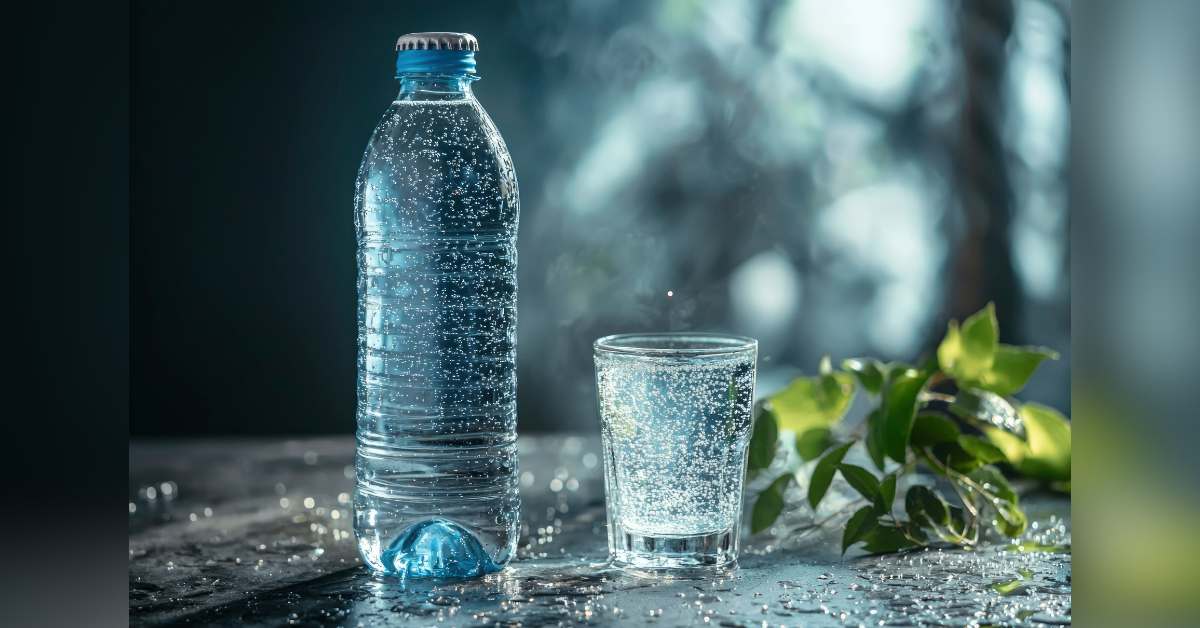Why Drinking Water from Air is Better than Bottled Water

If you're concerned about your health, the environment, or simply want to live a healthier lifestyle, you've probably pondered whether bottled water is truly the safest and most sustainable method to hydrate your family. For a long time, bottled water has served as the go-to answer for millions in search of purity and facilitation of water, but its environmental cost, health implications, and practical restrictions have proven increasingly difficult to overlook.
Enter the atmospheric water generator (AWG), a revolutionary technology that extracts pure potable water from the air we breathe. What distinguishes water from air machines as an enhancement over packaged water rather than merely a substitute? Here's what the newest research, business trends, and health research show.
Bottled Water: A Sector Under Scrutiny
Global bottled water sales have skyrocketed, reaching $303 billion in 2022 and are expected to exceed $500 billion by 2030. But this expansion hides fundamental questions:
- Plastic landfills: Roughly over 500 billion plastic bottles are distributed annually, with just 9% recycled.
- Microplastics: According to Orb Media (2018), 93% of bottled water specimens from 11 brands in 9 countries included microplastics, which are minuscule plastic bits that enter the human body.
- Source Quality Doubts: Up to 64% of bottled water is simply tap water, typically with no processing.
- Supply vulnerabilities: Bottled water relies on extensive supply systems that are susceptible to disruption as well as price fluctuation.
Hidden Health Risks
Some bottled water products have been recalled owing to contamination, including E. coli and mould. Brita, Nestlé, and numerous other big brands have experienced public scrutiny when tests revealed chemical and microbiological contamination in some batches that exceeded permissible limits.
Environmental Toll
Every single plastic water bottle requires 450 years to degrade, and plastic pollution currently affects all seas and most freshwater reservoirs. The fossil fuels and water necessary for bottle manufacturing, bottling, transportation, and disposal increase the release of greenhouse gases.
What is an Atmospheric Water Generator?
An atmospheric water generator (AWG) is an invention that absorbs moisture from the air, condenses it, and filters it, resulting in fresh, mineralised water that is free of pollutants.
Modern air water generators are available in a variety of sizes, from modest household units (20-100 litres daily) to industrial-scale machines that may serve large institutions. Unlike packaged water, these systems provide potable water on demand, no matter where they are installed—no factory, no transportation, and no single-use plastic.
How Air Water Generators Work: The Science of a Water from Air Machine
Picture a water-from-air machine to be the technological equivalent of morning dew. While air is pulled in:
- Condensation: As the AWG regulates the air below the dew point, water vapour condenses.
- Collection: Water that has condensed pours into a storage vessel. Water is filtered and purified using activated carbon, sediment, and, in many cases, UV-C treatment.
- Mineralisation: Minerals such as calcium and magnesium are incorporated to improve taste and health.
- Dispensing: The now-pure, mineral-balanced water is ready for consumption.
This clean, dynamic approach follows natural hydrological cycles while avoiding ground and surface contamination—a significant benefit over centralised bottling or tap sources.
Why Air to Water Machine Water is a Better Choice
- AWGs avoid the plastic packaging procedure, reducing the likelihood of being exposed to microplastics, a crucial issue considering all the findings on bottled water toxicity.
- Inorganic Residues: This air-to-water equipment removes pathogens, viruses, pesticides, toxic metals, and unpleasant flavours through multi-layered purification and UV-C treatment.
- Quality Assurance: Unlike bottled water, which varies depending on plant conditions, AWG production is consistent and can be monitored in real time using sensors.
- Neutral to Alkaline pH: Many AWGs, including Aeronero, optimise water to a pH of 7–8.5. Studies have shown that this spectrum promotes hydration and cellular wellness.
Backed by Research
A peer-reviewed study (Water, MDPI, 2020) found that when appropriately handled, AWG-produced water often exceeds the World Health Organisation's (WHO) drinking water quality criteria. It is also recommended by relief groups for disasters and utilised in sensitive settings such as healthcare facilities and refugee camps when the local supply is deemed dangerous.
The Environmental Case: Plastics, Carbon, and Ecological Toll
Bottled water has a tremendous environmental impact:
- Resource waste: A single litre of packaged water requires three litres of freshwater (Pacific Institute).
- Plastic Pollution: Plastic in the oceans may exceed fish by 2050 if current consumption rates continue (Ellen MacArthur Foundation).
- Carbon emissions: Manufacturing and distributing bottled water emits up to 300 times more carbon dioxide per litre than faucet or AWG water.
Atmospheric water producers help to overcome these issues:
- Water is released directly into reusable containers, thereby eliminating the need for single-use plastics.
- Significant reduction in transportation miles (and emissions) because water is produced where it is required.
- Reduced surface water and groundwater extraction protects aquifers, lakes, and rivers.
For climate activists and everyone looking to reduce their carbon and plastic footprints, air water producers are an essential tool.
Water Independence: Freedom from Supply Chains
As long as you rely on packaged water, you are connected to global supply chains. Your access to the convenience of bottled water can be disrupted overnight in cases of simple delivery issues or even calamities like drought and earthquakes.
We consider atmospheric water generators to be the first genuine innovation that promotes water sovereignty. This is because you can create water anywhere there is air and power (mains or solar). In other words, no trucks, no waiting, and no chance of price spikes or shortages. This is particularly useful for:
- Families in distant or disaster-prone places.
- Organisations assisting at-risk neighbourhoods.
- Rural areas, educational institutions, and clinical facilities that do not have access to centralised grids.
Economics: Which is More Cost-Effective?
At first glance, bottled water may appear inexpensive per bottle, but when you dig deeper, you discover that these prices escalate quickly. A household with four members using two litres per day will drink approximately 3,000 litres per year, costing between $1,500 and $2,000 at retail prices.
With AWGs, you only need to worry about the initial expenditure. After the initial investment, your AWG will produce water at a lower cost per litre, even lesser when paired with a renewable energy source. Consumers benefit from AWGs because they eliminate fluctuating market prices and recurring buying excursions.
Organisations may save even more money on transport, storage, and waste management, while also benefiting health, public relations, and the earth.
Who Benefits Most from AWGs?
- If you belong to a household that cares for the environment and you are looking to reduce your carbon footprint, choose AWGs to reduce water waste, carbon emissions, and plastic waste.
- If you are someone who takes great care in what goes in their body, you will savour freshly prepared, mineral-balanced water free of microplastics and questionable additives produced by an air water generator.
- Parents & clean-living families who want to provide children and families with an environment free from chemicals, toxins, and contaminated bottles.
- If you live in an isolated, rural or catastrophe-prone region where sudden delivery issues may occur at any moment, AWGs will give you the peace of mind with its plug-and-play operation, especially in situations when piped or bottled water is unavailable, costly, or unreliable.
Bottled Water in the Headlines: Real-Life Issues
- In 2023, due to bacterial and contaminant risks, several well-known manufacturers of bottled water were recalled in the US and the EU.
- In a number of marketplaces, Dateline NBC revealed that municipal water was being remarketed as "spring" water with little to no filtration.
- Following research in the US, India, and Europe that produced hard-hitting evidence against microplastics, this harmful occurrence has gained widespread media attention among communities, especially health-conscious families.
Bottled Water vs. Aeronero’s Atmospheric Water Generator: A Comprehensive Comparison
Bottled water may provide you with the convenience of being readily available, but when you take into consideration its impact on the environment, the economy and your well-being, you will notice that it far outweighs the pros. Aeronero’s AWG equip you with a solution that is environmentally friendly and fiscally responsible by creating safe and pure drinking water that is harvested straight from the air. Talk about killing three birds with one stone! This fits in nicely with the changing goals of communities looking for dependable water independence, health-conscious families, and climate environmentalists.
Additional Insights
- While you might think that bottled water fits your pocket, recurrent charges throughout the year make it pricey in the long run. On the other hand, AWGs require an initial investment, but they quickly prove to be cost-effective, especially when paired with renewable energy.
- When you choose AWGs, you choose a chance at genuine water sovereignty, as AWGs require only ambient air and power. This is contrasted by bottled water, which is dependent on global supply systems that are prone to disruption.
- Health-conscious individuals who are mindful when it comes to consuming organic foods free from microplastics perceive AWG water as a far safer and natural alternative due to direct control over the filtration and mineralisation processes.
- Ecologically-conscious consumers are increasingly rejecting bottled water because landfills today are primarily dominated by plastic waste that takes millions of years to break down. On the other hand, AWGs provide a realistic, sustainable alternative that is consistent with global sustainability goals.
Whether your primary worry is your family's health, your environmental impact, or just the future of safe drinking water, the negatives of bottled water are obvious: waste, risk, and excessive costs.
Atmospheric water generators, also known as air to water machines, provide a more efficient, safe, and environmentally responsible way to hydrate. AWGs make clean water available almost anywhere, eliminating the need for plastic bottles, factories, or fragile logistics.
Are you ready to embark on an environmentally friendly journey? 👉 To learn more, please visit www.old.aeronero.life or contact 1800 419 4190.
